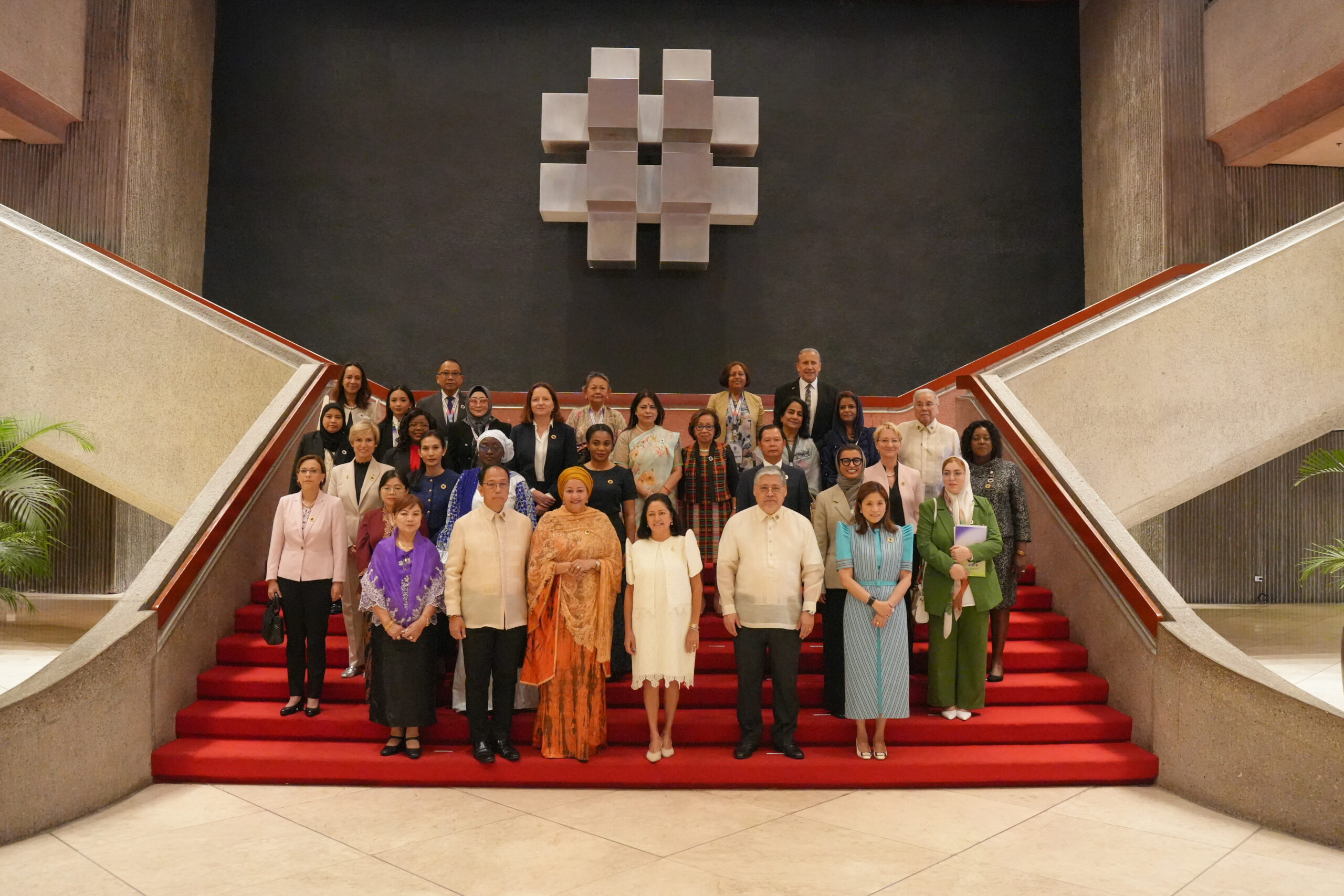
The Philippine delegation, together with First Lady Louise Araneta-Marcos, led the commencement of the first-ever ministerial-level International Conference on Women, Peace, and Security (ICWPS) at the Philippine International Convention Center in Pasay City on October 28, 2024.
Department of Budget and Management (DBM) Secretary Amenah F. Pangandaman underscored the need to mainstream gender and development in the national budget at the first-ever high-level ministerial International Conference on Women, Peace, and Security (WPS) hosted by the Philippines.
“What we should do, more than tagging this budget, (is that) we should already mainstream women in the entire national budget. You don’t allocate just five percent. When agencies, when our leaders propose the budget, they have to ensure that the Women’s Budget or women empowerment programs and projects is the goal of that budget. It’s like the entire budget should be providing livelihood, providing work, providing jobs to everyone,” the budget chief explained during the thematic session on financing strategies for WPS initiatives held on October 29, 2024.
READ: P6.352 trillion budget for 2025 gets House nod
In her opening statement, Pangandaman also reported that 16.68 percent of the entire national budget in 2023 was allocated for Gender and Development (GAD), much higher than the mandated minimum of 5 percent allocation for gender programs, projects, and activities.
Department of Budget and Management (DBM) Secretary Amenah F. Pangandaman
She then shared the government-funded WPS initiatives that promote women’s empowerment and lasting peace and security in the country.
These include social protection programs, such as the Pantawid Pamilyang Pilipino Program (4Ps), which also covers additional grants for pregnant and lactating mothers, as well as programs geared towards women’s economic empowerment, such as the Pondo sa Pagbabago at Pag-asenso (P3) Program.
Pangandaman also cited the People’s Survival Fund (PSF) which addresses women’s needs during climate crises and disasters, as well as the PAMANA or the PAyapa at MAsaganang PamayaNAn Program which strengthens peacebuilding initiatives, reconstruction, and development in the Bangsamoro Autonomous Region in Muslim Mindanao.
“As you know, women empowerment leads to equality; equality leads to peace; peace leads to economic development; and economic development leads to prosperity,” the budget chief said during her opening statement.
Meanwhile, Australian Ambassador for Gender Equality Stephanie Copus Campbell emphasized the vital role that donors, such as the private sector and philanthropic groups, play in the successful implementation of WPS initiatives.
Ambassador Campbell also highlighted the importance of telling women’s stories backed with research and communicating the evidence to those who have the resources to fund the WPS Agenda.
In line with this, the Country Director of HIAS Ukraine Maria Jose Gomez Gonzales, highlighted the importance of taking women’s stories and testimonies around the world to donors and countries.
Director Gonzales also emphasized the need for long-term funding for grassroots organizations, covering operating and administrative costs, and always with the Implementation Completion and Results Report (ICR).
Finally, Philippine Commission on Women Chairperson Ermelita V. Valdeavilla confirmed the challenge in the implementation of the GAD Budget in the country — the submission of accomplishment reports with the required evidence that government agencies have implemented and utilized the GAD Budget as intended.
“So much more remains to be done to strengthen the results. Hence, we are introducing results-based budgeting that will enable us to see the impact [of programs and projects] in the lives of women,” Valdeavilla said.
In the end, the panelists agreed that there is more to be done to achieve the Sustainable Development Goal of gender equality and the empowerment of all women and girls.
“Let us do everything we can to further empower our women, especially the future generations of women who, like us, will stand up for peace and ensure not only the security but also the prosperity of nations,” Pangandaman concluded.
The thematic discussion was moderated by veteran journalist and UN Women Philippines Goodwill Ambassador Karen Davila.